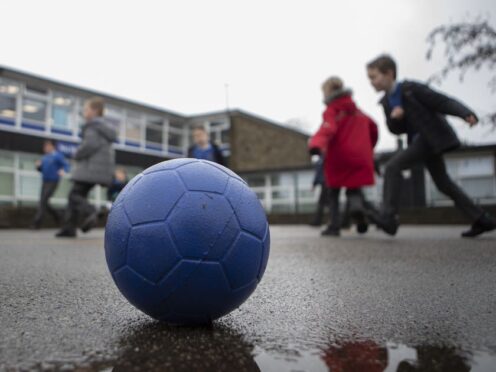Campaigners believe there is still a “huge gap” between the cost of raising a child in Scotland and family incomes despite recent government efforts to provide additional support.
New analysis carried out by the Child Poverty Action Group (CPAG) shows the financial support available to out-of-work families in Scotland through the social security system is around 40% short of the income needed to meet an acceptable standard of living.
A report published by the organisation this week states families have benefitted from a range of Holyrood policies such as the Scottish Child Payment, free school meals for all pupils in P1 to P5, free bus travel for people under 22 and school clothing grants.
However, the group believes more must be done to help parents after finding it costs at least £166,000 to raise a child to a socially acceptable standard of living in modern times.
CPAG has sent a briefing to all MSPs ahead of this week’s final vote on the draft Scottish Budget for 2024-25 saying the latest tax and spending plans “fails to sufficiently build on existing Holyrood support for families”.
It believes the Budget “will at best stall progress on child poverty” and is calling on ministers to consider implementing a range of measures to reduce the problem including raising the Scottish Child Payment to £30 per week.
John Dickie, director of the Child Poverty Action Group in Scotland, said: “This important analysis confirms that Scottish government policies that are already in place, not least the Scottish Child Payment, are making a big difference to families.
“But there is still a huge gap between incomes and the minimum cost of raising a child. The Scottish Budget needs to do far more to plug that gap.
“It’s bitterly disappointing that as yet we have not even seen an increase in the Scottish Child Payment to the £30 per week that the First Minister said he wanted during his leadership campaign.
“This new analysis shows just how much more is needed to ensure families have an adequate income to give their children a decent start in life.”
The report’s author, Dr Juliet Stone, a research fellow at the Centre for Research in Social Policy at Loughborough University, added: “As the cost-of-living crisis continues to severely stretch the incomes of families across the UK, the additional financial support provided to households with children in Scotland, particularly through the Scottish Child Payment, is more important than ever.
“However, even in Scotland the social security system still fails to provide enough for these households to reach a minimum socially acceptable standard of living.
“Much more needs to be done to protect children and their families from financial hardship.”
A Scottish Government spokesperson responded: “Tackling poverty and protecting people from harm is one of three critical and interdependent missions for the government and the Scottish Budget 2024-25 unapologetically directs our resources to those in greatest need.
“It commits a record £6.3 billion in social security benefits and payments – over £1 billion more than last year. This includes increasing the Scottish Child Payment in line with inflation to £26.70 a week from April, giving more support to over 327,000 under 16s who receive it.
“This benefit is not available anywhere else in the UK, as have chosen to prioritise lifting children out of poverty, despite our constrained resources.
“Modelling estimates that 90,000 fewer children will live in relative and absolute poverty in 2023-24 as a result of the Government’s policies, with poverty levels 9% points lower than they would have otherwise been.
“This includes lifting an estimated 50,000 children out of relative poverty through the Scottish Child Payment.”
